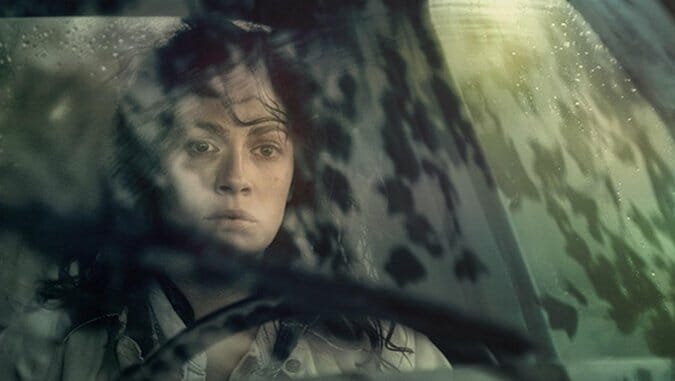Runoff

Director Kimberly Levin’s Runoff is a frequently lovely, impressionistic film. Not only is her rendering of rural Kentucky gorgeous, she’s able to recreate well-observed vignettes of clandestine human bliss: a husband and wife taking a literal roll in the hay; a son teaching a mother, who is being dorky, to use a bong; a neighbor taking pleasure in the quiet support of a close knit community affected by larger, institutional forces. These moments give weight to the plot at hand, populating what could be a bloodless analysis of the plight of small farmers with actual human beings.
These human beings are beset by hardships. The small family farm business of Betty (Joanne Kelly) and Frank (Neal Huff) is affected by Gigas, a commercial farming venture. (“Gigas” is, thankfully, the only truly on-the-nose reference in the screenplay.) Frank sells feed and medication systems to other local farms; Gigas has been stealing his clients by guaranteeing to purchase the livestock of these farms in exchange for installing their own systems. Small farms that don’t accept these offers end up in debt as the local economy breaks down, allowing Gigas to buy these farms from the bank. Small farms that do cooperate avoid debt in the short term but are leaned on to produce heavy quotas until they too are forced to give up title. The film, perhaps intentionally, also suggests that many of the farmers who have accepted Gigas contracts are older and aren’t so worried about the long term. So, for young farmers like Frank and Betty, neither choice is particularly attractive.
-

-

-

-

-

-

-

-

-

-

-

-

-

-

-

-

-

-

-

-

-

-

-

-

-

-

-

-

-

-

-

-

-

-

-

-

-

-

-

-








































